When it comes to selecting roofing materials, the lifespan and durability of shingles are important factors to consider. You may have heard of 50 year shingles, but do they really last that long? The answer is not so straightforward. Many factors can affect the longevity of your shingles, including climate, installation quality, and maintenance practices.
In this article, we’ll discuss the average lifespan of 50 year shingles, compare their durability with other roofing materials, explore the 50 year shingle warranty, and provide tips for maximizing their lifespan. By the end, you’ll be equipped with the knowledge to make informed decisions about your roofing needs.
Key Takeaways:
- 50 year shingles may not necessarily last for 50 years, and their lifespan can vary based on various factors.
- Shingle durability and longevity are impacted by factors such as climate, installation quality, and maintenance practices.
- The 50 year shingle warranty covers specific types of damage and does not guarantee shingle lifespan.
- Extended-life shingles are designed to last longer than traditional shingles.
- Hiring experienced and reputable roofing contractors for installation is crucial to maximizing shingle lifespan.
Understanding Shingle Lifespan and Durability
When determining the lifespan of shingles, it is important to understand what shingle durability and longevity refer to. Shingle durability refers to a shingle’s ability to withstand external stresses, such as weather conditions and physical impact, while shingle lifespan refers to the duration of time that a shingle can reasonably be expected to remain functional and maintain its physical integrity.
The average lifespan of shingles can vary based on a number of factors, including climate, installation quality, and maintenance practices. For example, shingles installed in areas with harsh weather conditions, such as high winds or heavy precipitation, may experience more wear and tear than those installed in milder climates. Similarly, shingles installed by experienced and reputable contractors who follow manufacturer guidelines are more likely to have a longer lifespan than those installed by inexperienced or careless contractors.
Other factors that can impact the lifespan of shingles include the quality of the materials used, the design of the roof, and the frequency and quality of maintenance. Proper maintenance such as regular inspections and proactive repairs can significantly extend the lifespan of shingles, while neglecting maintenance can shorten it.
It is important to keep these factors in mind when considering the durability and longevity of 50 year shingles. While they are designed to last longer than traditional shingles, their actual lifespan will depend on a variety of factors unique to each individual installation.
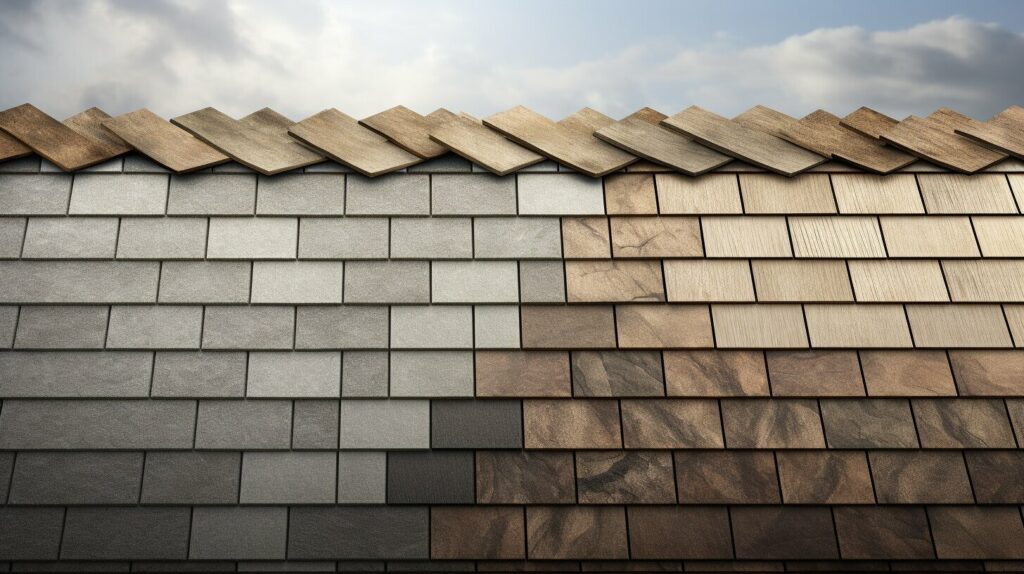
Factors affecting shingle lifespan:
- Climate conditions
- Installation quality
- Maintenance practices
- Materials quality
- Roof design
Exploring the 50 Year Shingle Warranty
When considering 50 year shingles for your roofing needs, the warranty offered by the manufacturer is an important consideration. The 50 year shingle warranty is often misinterpreted to mean that the shingles will last for 50 years without any issues, but this is not always the case.
| What the Warranty Covers | What the Warranty Does Not Cover |
|---|---|
| The warranty typically covers defects in materials and workmanship. | The warranty does not cover damage caused by natural disasters, improper installation, or lack of maintenance. |
| The warranty may also cover the cost of materials and labor for repairs or replacements. | It is important to carefully read the warranty terms and conditions to fully understand what is covered and what is not. |
It is essential to understand the warranty terms before making a decision about investing in 50 year shingles. In the event of a shingle failure, the warranty can provide financial protection and peace of mind.
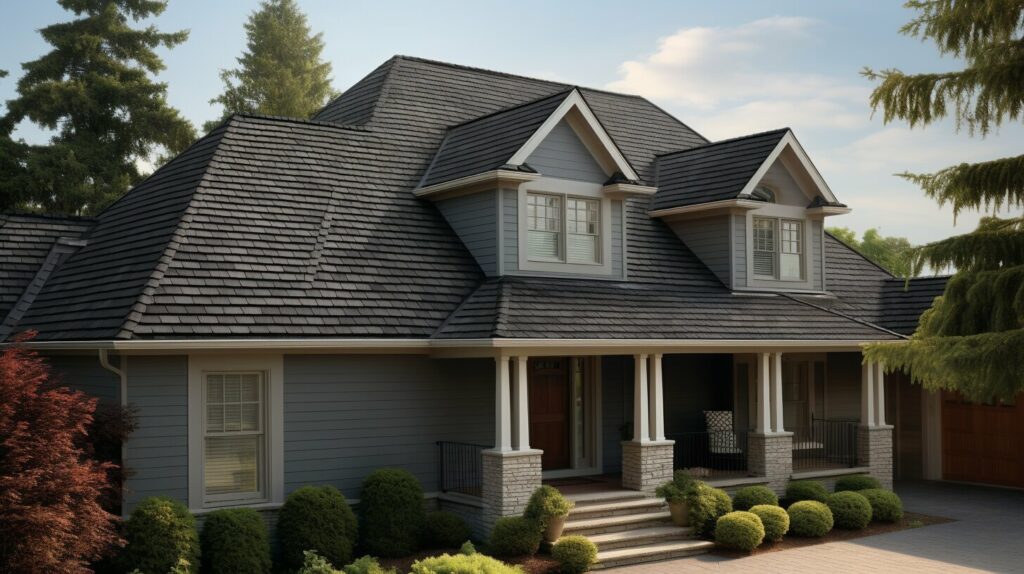
However, it is important to note that the warranty is not a guarantee of the shingles’ lifespan. The actual lifespan of the shingles will depend on various factors such as climate, installation quality, and maintenance practices.
In the next section, we will explore the average lifespan of 50 year shingles and the factors that can impact their durability and longevity.
Average Lifespan of 50 Year Shingles
When it comes to investing in a new roof, many homeowners are drawn to the allure of 50 year shingles. After all, these shingles are marketed as having an exceptionally long lifespan, making them a smart investment for any home. However, it’s important to understand that the term “50 year shingles” refers to a warranty, not a guarantee of how long the shingles will actually last.
According to industry experts, the average lifespan of 50 year shingles is between 25 and 30 years. While this is still longer than the average lifespan of traditional shingles, it’s important to recognize that there are several factors that can impact the longevity of your shingles.
For example, the climate in your area can play a significant role in how long your shingles last. If you live in an area with harsh weather conditions, such as high winds, heavy rain, or extreme temperatures, your shingles may deteriorate more quickly than they would in a milder climate. Additionally, the quality of the installation can impact how long your shingles last, as can the maintenance and upkeep you provide for your roof over the years.
It’s also worth noting that the lifespan of 50 year shingles can vary depending on the manufacturer and the specific product. Some brands may offer shingles that last longer than the industry average, while others may not perform as well.
Ultimately, the key to maximizing the lifespan of your 50 year shingles is to be proactive in your maintenance efforts. Regular inspections, prompt repairs, and routine cleaning and upkeep can all help extend the lifespan of your shingles and keep your roof looking and functioning its best.
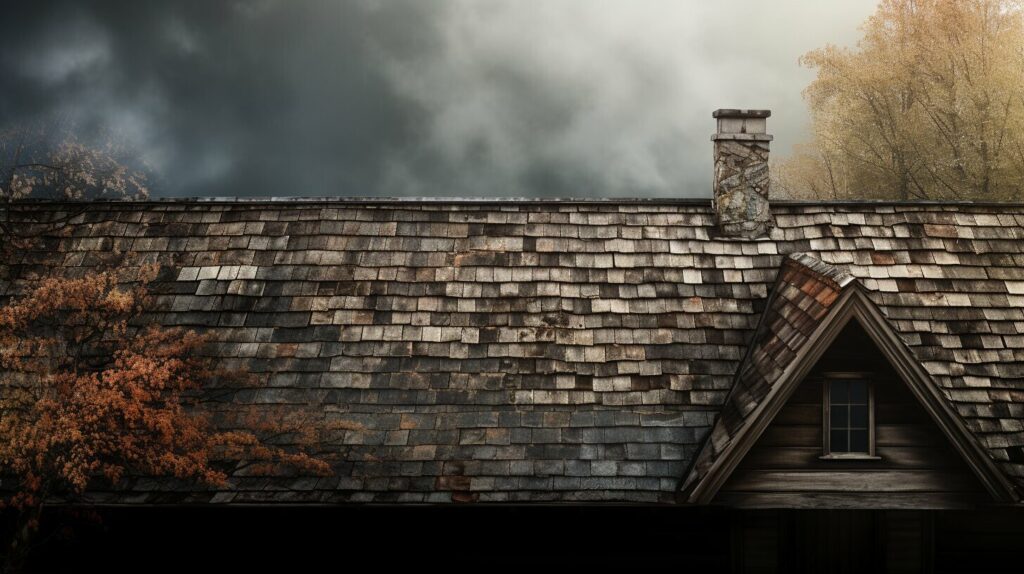
Remember: while 50 year shingles may have a longer lifespan than traditional shingles, they are not a one-size-fits-all solution for every home. It’s important to consider your specific needs, budget, and long-term goals when deciding on the right roofing material for your home.
Comparing Shingle Lifespan
When it comes to choosing roofing materials, lifespan is a crucial factor to consider. While 50 year shingles are marketed as long-lasting, it’s important to understand how they compare to other roofing options.
Asphalt shingles, which include 50 year shingles, typically have a lifespan of 15-30 years, depending on various factors such as climate and maintenance. In comparison, metal roofing can last 50-75 years, while clay or concrete tiles can last over 100 years.
While the longevity of metal and tile roofing may seem like an obvious advantage, it’s important to consider other factors such as cost and installation requirements. Metal and tile roofing can be significantly more expensive than asphalt shingles and may require specialized installation.
Another factor to consider is the appearance of the roofing material. While asphalt shingles come in a variety of colors and styles, metal and tile roofing may not have as many options to choose from.
| Roofing Material | Lifespan | Cost (per square foot) | Installation Complexity | Appearance Options |
|---|---|---|---|---|
| Asphalt Shingles | 15-30 years | $1.50-$5 | Easy | Many |
| Metal Roofing | 50-75 years | $5-$12 | Intermediate | Fewer |
| Clay/Concrete Tiles | 100+ years | $10-$20 | Difficult | Few |
As you can see, there are pros and cons to each roofing material. Ultimately, the decision should be based on your specific needs and budget. If you prioritize cost and variety in appearance, asphalt shingles may be the right choice. If longevity is your main concern and you are willing to invest more upfront, metal or tile roofing may be a better option.

Factors Affecting 50 Year Shingle Lifespan
When it comes to the lifespan of 50 year shingles, there are several factors to consider. Understanding these factors can help you maximize the longevity of your shingles and avoid premature wear and tear. Here are some of the most important factors affecting shingle lifespan:
Environmental Factors
The climate in your region can have a significant impact on the durability of your shingles. Extreme temperatures, high winds, and heavy precipitation can all take a toll on your roof over time. If you live in an area with harsh weather conditions, you may need to take extra precautions to protect your shingles.
In addition, exposure to ultraviolet (UV) rays from the sun can cause shingles to deteriorate more quickly. If your roof is in direct sunlight for much of the day, it may be more susceptible to damage than a roof that is shaded for part of the day.
Installation Factors
The quality of the installation job can also affect the lifespan of your shingles. If your shingles are not installed properly, they may be more prone to damage and may not last as long as they should.
It’s important to choose an experienced and reputable roofing contractor who will follow manufacturer guidelines and use quality materials to ensure a proper installation. In addition, regular inspections and maintenance can help identify any issues early on and prevent further damage to your shingles.
Maintenance Factors
Regular maintenance is crucial for maximizing the lifespan of your shingles. Neglecting your roof can lead to a buildup of debris, algae growth, and other issues that can weaken your shingles over time.
To keep your shingles in good condition, it’s important to have your roof inspected regularly by a professional. In addition, keeping your gutters clean and free of debris can prevent water damage and ensure that your shingles stay in good condition.
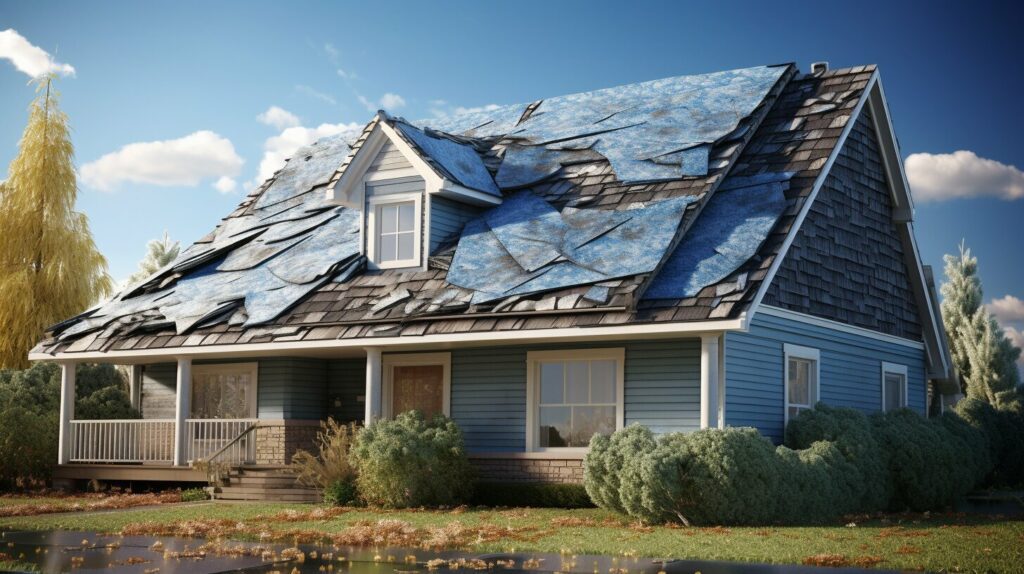
By taking these factors into account and investing in quality materials and installation, you can ensure that your 50 year shingles last as long as possible. Regular maintenance and proactive repairs can help extend their lifespan even further, providing you with a durable and long-lasting roofing solution for your home.
The Importance of Extended-Life Shingles
When it comes to choosing roofing materials, you want to make sure you invest in quality products that will provide durability and longevity. This is where extended-life shingles come into play.
Unlike traditional shingles, which may have a lifespan of around 20-30 years, extended-life shingles are specifically designed to last longer, typically up to 50 years or more. They are made with higher quality materials that can withstand harsh weather conditions, and are often backed by a manufacturer warranty that guarantees their longevity.

While extended-life shingles may come at a higher cost, they can provide significant long-term benefits. Not only will they save you money on frequent repairs and replacements, but they can also increase the overall value of your home.
With extended-life shingles, you can have peace of mind knowing that your roof is equipped to withstand the test of time.
Maximizing the Lifespan of 50 Year Shingles
If you’ve invested in 50 year shingles, you want to ensure they last as long as possible. Thankfully, there are several steps you can take to maximize their longevity and protect your investment.
Regular Inspections: Schedule regular roof inspections with a professional roofing contractor. They can identify and address any issues before they become major problems.
Proper Maintenance: Keep your roof clean and clear of debris. Trim overhanging branches and remove any leaves or twigs that accumulate. Check for damage after heavy storms or high winds, and make repairs as needed.
Proactive Repairs: Don’t wait until there’s a problem to call in the professionals. Addressing minor issues early on can prevent bigger, more expensive problems down the line.
Invest in Quality Materials: When it comes to roofing materials, you get what you pay for. Investing in high-quality 50 year shingles can provide greater durability and longevity, reducing the likelihood of costly repairs or replacements.
Hire Experienced Contractors: Proper installation is key to the longevity of your shingles. Only hire experienced and reputable roofing contractors who adhere to manufacturer guidelines and best practices.
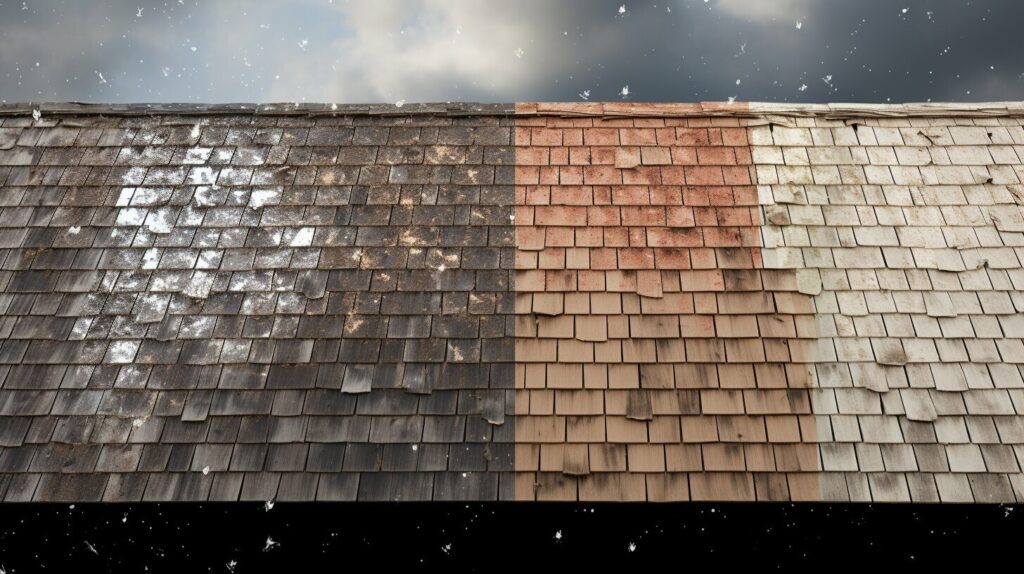
By taking these steps, you can help ensure that your 50 year shingles last as long as possible, providing reliable protection for your home and peace of mind for you and your family.
Investing in Quality Installation
When it comes to maximizing the lifespan of your 50 year shingles, one of the most important factors to consider is the quality of installation.
While some homeowners may attempt to install shingles themselves or hire inexperienced contractors, this can lead to improper installation that can compromise the integrity of the shingles.
To ensure that your 50 year shingles are installed correctly, it is essential to choose a roofing contractor that has a proven track record of quality work and adheres to manufacturer guidelines.
Make sure to ask for references and check online reviews to assess the reputation of the contractor before hiring them.
By investing in quality installation, you can help to ensure that your 50 year shingles perform to their maximum potential and provide long-lasting protection for your home.
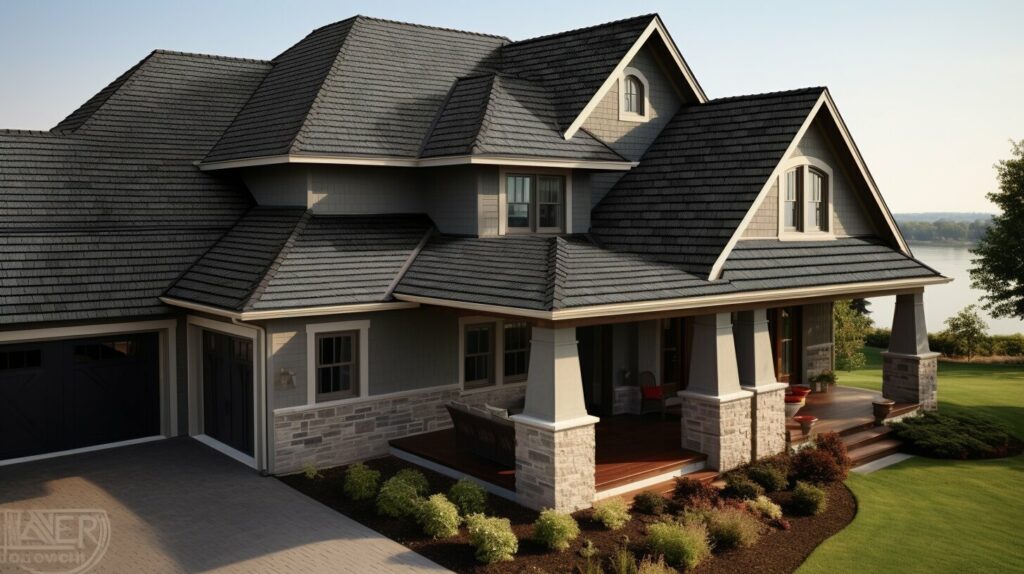
Making Informed Roofing Decisions
After learning about the lifespan, durability, and factors impacting 50 year shingles, it’s time to make an informed decision about your roofing needs. When deciding on roofing materials, consider your budget, climate, and long-term goals for your home.
Remember that 50 year shingles are not the only option available for a long-lasting roof. Compare the lifespan of 50 year shingles with other materials, such as metal, tile, or slate. Each material has its advantages and disadvantages, so it’s essential to choose the one that best fits your needs.
To ensure the longest lifespan for your shingles, focus on proper installation and regular maintenance. Invest in high-quality installation by hiring an experienced roofing contractor who follows manufacturer guidelines. Regular inspections and proactive repairs can also increase the longevity of your shingles.
Ultimately, making an informed decision comes down to understanding your specific needs and goals. Don’t hesitate to seek professional advice or consult with trusted friends or family members. By taking the time to research and deliberate, you can make a choice that will provide protection and peace of mind for years to come.
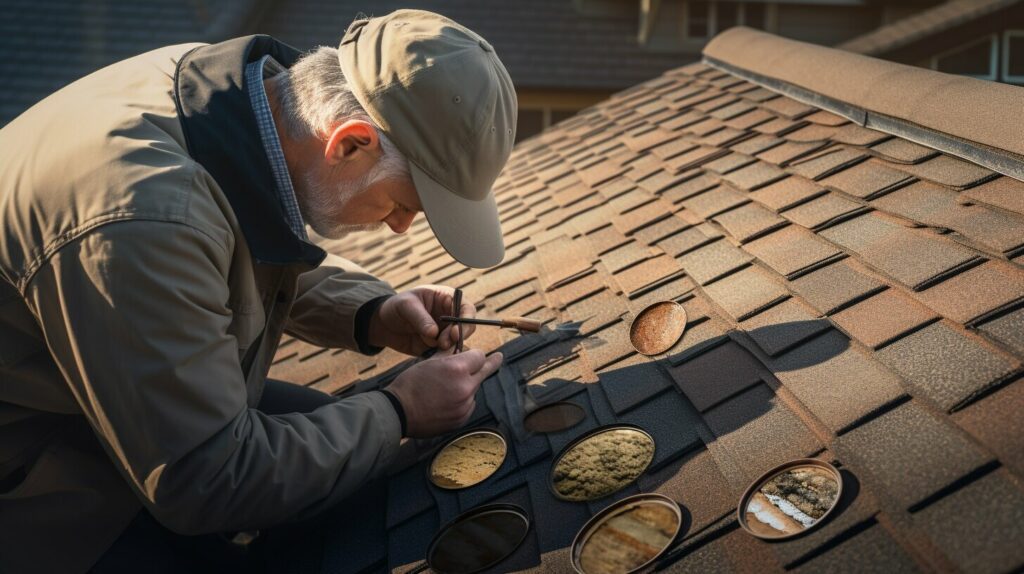
Conclusion
Choosing the right roofing material is an important decision that can impact the safety and value of your home. As we have seen in this article, 50 year shingles can be a great option for achieving long-term durability and longevity, but understanding their true lifespan requires careful consideration of a variety of factors.
When it comes to maximizing the lifespan of your 50 year shingles, regular inspections and maintenance are crucial. Being proactive about repairs and investing in high quality installation are also key to ensuring that your shingles last for as long as possible.
It’s important to recognize that while 50 year shingles are designed to last for five decades, actual lifespan can vary depending on environmental factors, installation quality, and other factors beyond your control. That being said, by making informed decisions and taking proactive steps, you can help to extend the lifespan of your shingles and get the most out of your investment.
When considering your roofing options, be sure to consult with experienced professionals and take a holistic approach to your decision-making process. By doing your research and considering all relevant factors, you can be confident in your choice and enjoy the benefits of a durable, long-lasting roof for many years to come.
FAQ
Q: How long do 50 year shingles really last?
A: The lifespan of 50 year shingles can vary depending on several factors. While they are designed to last for 50 years, the actual lifespan can be influenced by factors such as climate, installation quality, and maintenance practices.
Q: What factors can affect the lifespan of 50 year shingles?
A: Several factors can impact the longevity of 50 year shingles. These include climate conditions, such as extreme heat or cold, as well as exposure to heavy rain, snow, or wind. Additionally, the quality of installation and ongoing maintenance can also play a role in determining how long the shingles will last.
Q: Are 50 year shingles covered by a warranty?
A: Yes, 50 year shingles typically come with a warranty. The specifics of the warranty can vary between manufacturers, so it is important to read the terms and conditions carefully. The warranty may cover defects in materials or workmanship, but it is important to note that it may not cover damage caused by external factors or improper installation.
Q: What is the average lifespan of 50 year shingles?
A: On average, 50 year shingles can last between 25 to 30 years. However, this lifespan can vary depending on the aforementioned factors. It is important to conduct regular inspections and maintenance to ensure that the shingles are performing optimally and to address any potential issues promptly.
Q: How do 50 year shingles compare to other roofing materials?
A: Compared to other roofing materials, 50 year shingles generally have a longer lifespan. They are more durable than traditional asphalt shingles and can withstand harsh weather conditions better. However, it is important to consider the specific needs and budget before making a decision, as alternative roofing materials may also offer advantages depending on the circumstances.
Q: What can I do to maximize the lifespan of 50 year shingles?
A: To maximize the lifespan of 50 year shingles, regular inspections and maintenance are crucial. It is important to keep the roof clean, address any damage or wear promptly, and ensure proper ventilation. Additionally, investing in quality installation by hiring experienced roofing contractors can help ensure that the shingles are installed correctly, further extending their lifespan.
Q: How do I make informed roofing decisions?
A: When making roofing decisions, it is important to consider your specific needs, budget, and long-term goals. Research different roofing materials, compare their advantages and disadvantages, and seek professional advice if needed. Understanding the factors that can affect the lifespan of 50 year shingles will help you make an informed decision that best suits your requirements.